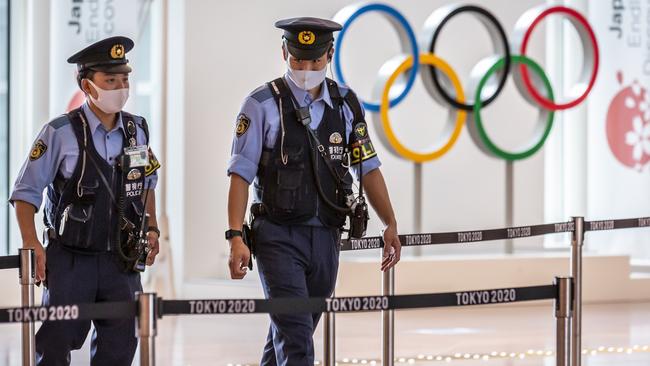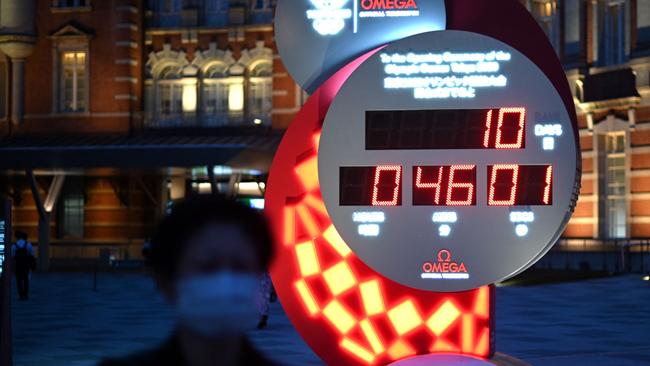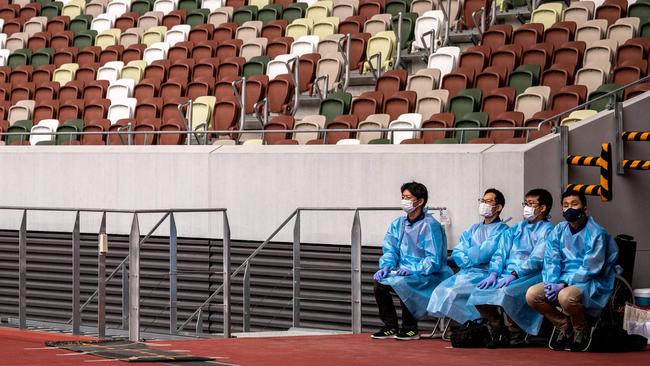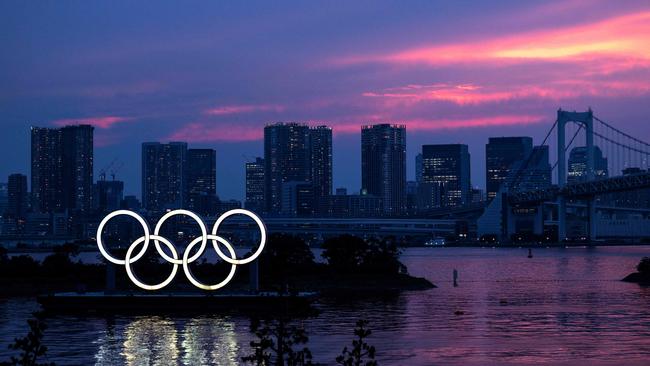Tokyo Olympics: a warm welcome but signs of Covid mistrust at Games host
International arrivals being followed to catch Covid breaches, separate lifts for Japanese and ‘foreigners’; Suspicion abounds, but in the nicest possible way.

It was feared that visitors to Tokyo for the Olympic Games would be met with hostility and made to feel like a herd of Delta variant superspreaders.
When I arrived yesterday, however, I was treated like the Queen.
At least I was when staff at the accreditation desk at Haneda airport asked me if I had two birthdays.
This, it turned out, was prompted by an inconsistency between what it said on the Tokyo 2020 system and what they were now reading in my passport.
A consequence, we eventually deduced, of the day and month of my date of birth being inadvertently switched.

They thought I was born on 4/12/70, when in fact it was 12/4/70. But the chap in charge could not have been more apologetic, even if I now have to spend three days in quarantine before I can be issued with my official pass.
There have been some horror stories
One Japanese magazine has been following international journalists and exposing them for breaches of Covid-19 protocols, while the official event organisers warned accredited media that the Japanese public would not hesitate to shame us on social media if we broke the rules.
Never mind a newspaper article that detailed a hotel with segregated lifts for “Japanese” and “foreigners”. The hotel has since apologised.
The process of getting to Japan was a bit of a faff, involving two PCR tests, 96 and 72 hours before departure – with completed forms supplied by the Japanese ministry of health a further requirement – and a mountain of administration.
Activity plans for the first 14 days of your stay had to be submitted and approved, while various phone apps needed to be downloaded to record medical information and monitor your precise whereabouts.
Tokyo is in a state of emergency because of the pandemic and will remain so for two weeks after the Games, and the various checkpoints at the airport meant that it took more than 2 and a half hours to reach the baggage collection area.
Test results, documents, accreditation forms and passports were heavily scrutinised, while there was an additional saliva test. Athletes, officials and journalists spat into a tube and then assembled in an area at the terminal, waiting 45 minutes before receiving their result. With the prospect of ten days in isolation in a designated Covid hotel, the little pink form that said “negative” came as an almighty relief.
But our Japanese hosts could not have been more courteous and polite, guiding visitors to the next station with a warm smile. Even an armed police officer said: “Welcome to Japan,” as I strolled past.

For the athletes there did appear to be a few more challenges. Some Brazilian surfers, for instance, were made to join a painfully long queue for customs with their boards. For reporters armed only with laptops, however, there were no such issues.
Free media buses were laid on, transporting reporters to a huge taxi rank with cars ready to deliver us individually to our hotels. It all went impressively smoothly, with my driver pointing out some of the sights en route.
Once at the hotel I immediately spotted two security women positioned inside the lobby, opposite the lifts.

It is their job to make sure we abide by the rules on quarantine, which include permission to leave the hotel for 15 minutes at a time to purchase food.
This is because many of the media hotels do not have a restaurant or provide room service.
The two women in my hotel are actually rather lovely.
“Are you an Olympic basketball player?” one of them asked, with a hint of excitement. Clearly there are some advantages to wearing a mask.
The Times







To join the conversation, please log in. Don't have an account? Register
Join the conversation, you are commenting as Logout